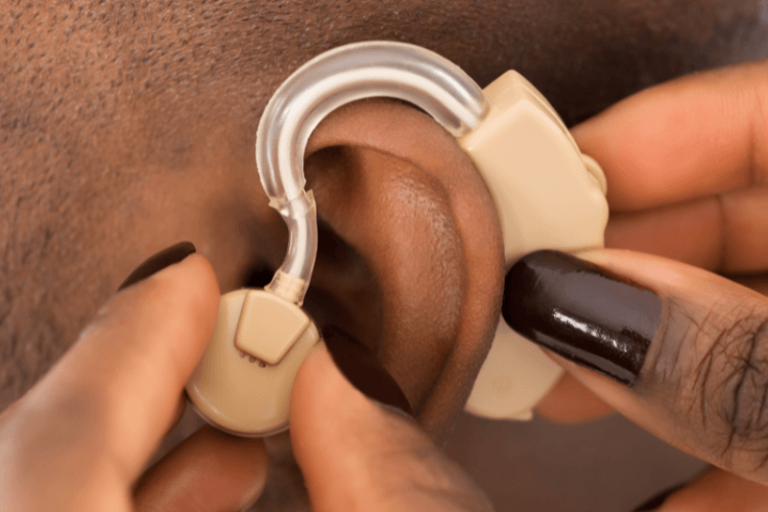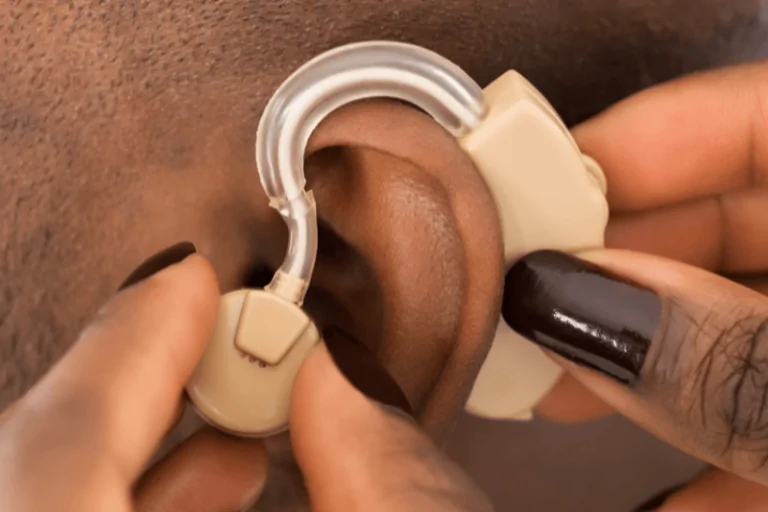

image 800x533 (22)
Around 40 million people live with hearing loss in the African Region, but this figure could rise to 54 million by 2030 if urgent action is not taken to tackle the problem, according to a new report from the World Health Organisation (WHO).
The impact of hearing loss on human lives and economies is profound, costing Africa $27 billion a year, according to the WHO Africa Region status report on ear and hearing care, launched today at the Africa Hearing Loss Summit in Nairobi, Kenya.
In the absence of urgent interventions, widespread hearing loss, which disproportionately affects poor and vulnerable populations, will continue to worsen, amplifying existing inequalities in access to health services in Africa.
The consequences of hearing loss for children are considerable, including delays in language development, which increases the risk of poor performance at school and limited career prospects. Adult people with untreated hearing loss often face isolation, loneliness and an increased risk of depression and dementia.
According to the report, there are a number of factors behind the increase in the prevalence of hearing loss in the African region. Foremost among these is the acute shortage of ear and hearing care specialists, as well as the poor distribution of the available workforce in favour of urban areas. Over 56% of African countries, for example, have just one ear, nose and throat (ENT) specialist for every million inhabitants. This compares with around 50 per million in the European region.
In Africa, more than three quarters of countries have fewer than one audiologist and one speech therapist per million inhabitants. In addition, while 33 million Africans could benefit from a hearing aid, only 10% of them have access to one due to the lack of EHC funding and the resulting high costs.
Evidence from 43 African countries shows that while 36 countries provide hearing health services at tertiary level, similar services are not offered at primary care level. This despite the fact that common causes of hearing loss can be prevented by simple public health interventions or measures to reduce risk factors.
The report found that among children living in low- and middle-income countries, up to 75% of hearing loss is due to preventable causes such as common ear infections and diseases, as well as complications at birth. The analysis revealed, however, that most countries do not systematically screen newborn babies for hearing loss.
Even in countries with hearing health programmes, hearing health interventions are not integrated into priority health programmes such as school health, occupational health or healthy ageing programmes. This problem is compounded, according to the authors, by the absence of national policies and plans to strengthen the implementation of primary health care, and by low levels of implementation, even where such plans exist. Additionally, 35% of countries have no budget allocated to environmental health activities, with patients having to bear the full cost of any related treatment.
The Somali president supports their military forces to eliminate the threats from Al-Shabaab, ISIS, and Al-Qaeda. The Somali National Army…
UAE President Sheikh Mohamed bin Zayed Al Nahyan held talks with President Faustin Archange Touadéra of the Central African Republic…
African football teams struggle intensely in the World Cup Qualification rounds to earn their place on the international football stage.…
The journey toward the 2026 FIFA World Cup is rapidly intensifying for all African teams, who now hold a historical…
The cricket authority in Zimbabwe will organize matches between top international teams in a major cricket event expected to succeed…
In 2025 the South African Social Security Agency (SASSA) announced its designated dates for social grant payments that benefits millions…
This website uses cookies.